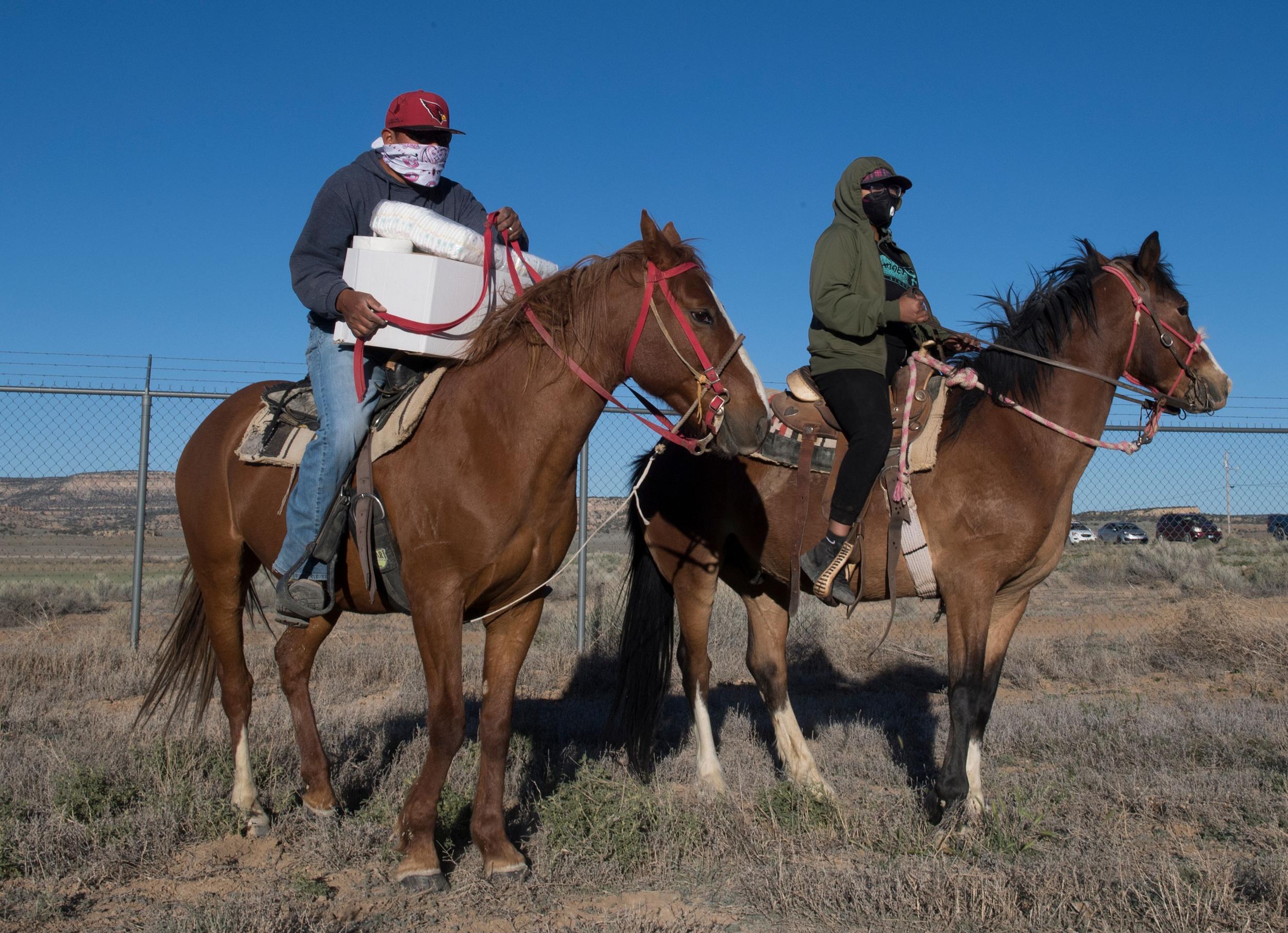Native Americans cancel Sun Dances and other cultural ceremonies to halt spread of coronavirus
‘I don’t look at Covid-19 as a biomedical issue in Indian communities. It really is a social justice issue’
Native Americans are cancelling Sun Dances other cultural ceremonies to halt the spread of the coronavirus, as infections amid indigenous communities begin to soar.
In the so-called Great Plains states of North and South Dakota, community leaders have put off this year’s planned Sun Dances, days-long gatherings when people come together for collective healing. Elsewhere, Pow wows, or traditional gatherings, have gone online for those with access to the internet.
Indigenous leaders say the cancellation of the events, enacted to enforce social distancing, further impacts the well-being of the community, many members of which struggle from mental health challenges. Events such as traditional “sweats”, are no longer possible.
The 173,000-strong Navajo Nation, whose territory includes part of New Mexico, Utah, and Arizona, remains on lockdown, after recording at least 4,800 infections and 150 deaths – the highest per capita infection rate in the country.
At the same time, other communities across the country are bracing; last week around 80 new infections were reported in the South Dakota town of Rapid City. “The Native American population is being affected to a greater extent,” Rapid City mayor Steve Allender said in a weekly briefing.
Donald Warne, a physician and associate dean at the University of North Dakota School of Medicine and Health Sciences, said before the pandemic struck, native communities were already combatting some of the worst national rates of poverty and unemployment, and worst access to healthcare.
Now, he said, as politicians argued, Native Americans were “dying of neglect”.
“I don’t look at Covid-19 as a biomedical issue in Indian communities. It really is a policy issue, and a social justice issue,” he told a briefing, organised by the Robert Wood Johnson Foundation, which works on health issues.
“And as American Indians, we are the only population born with a legal right to health services, and that’s based on treaties and other laws and Supreme Court decisions that show American Indians exchanged land and natural resources for various social services, including housing, education and health care.”
Mr Warne, a member of the Oglala Lakota tribe from Pine Ridge, South Dakota, said communities were trying to protect themselves, even as some politicians sought to undermine their efforts.
Earlier this month, South Dakota governor Kristi Noem threatened to sue two tribes, the Cheyenne River Sioux and Oglala Sioux, who erected a number of roadblocks and check points on routes leading to their reservations.

The efforts were part of a broader effort to limit the spread of the virus, but Ms Noem claimed the tribes had broken the law by failing to speak to the authorities about their plans. She is one of around a half-dozen governors who imposed no lockdown measures when the virus struck.
“It’s even had some cultural implications. We have ceremonies like the Sun Dance, for example. Most of those have been postponed or cancelled for this year, which is highly unusual,” he said.
Dr Warne later said the Sun Dance, which involves a number of dancers and drummers, was just one of the events being put off.
“Many of our traditional healers and medicine men are now postponing or just cancelling for this year. A lot of those sacred practices does have cultural implications,” he said
“With the Sun Dance people commit to doing that for four years. So there’s many, many people who are supposed to be finishing their four year commitment this year, but because of the pandemic, it’ll get postponed until next year.”
Mary Owen, who is also a doctor and who directs the Centre of American Indian and Minority Health at the University of Minnesota, said cultural practices and traditions varied by community. Yet virtually all had been cancelled or else moved online.
“Our Pow wows are held by many, many tribes. They’re a meeting, and a celebration of our culture, the time to get community stuff done,” she told The Independent.
She said research had shown the relationship between attending such events and positive mental health among community members.
“I’ve not looked into this, but I’m guessing you can find something similar for some people with church and religion,” said Ms Owe, who is originally from Alaska and is a member of the Tlingit community.
She added: “It’s not just the traditions themselves, but it’s coming together to practise the traditions.”
Join our commenting forum
Join thought-provoking conversations, follow other Independent readers and see their replies
Comments